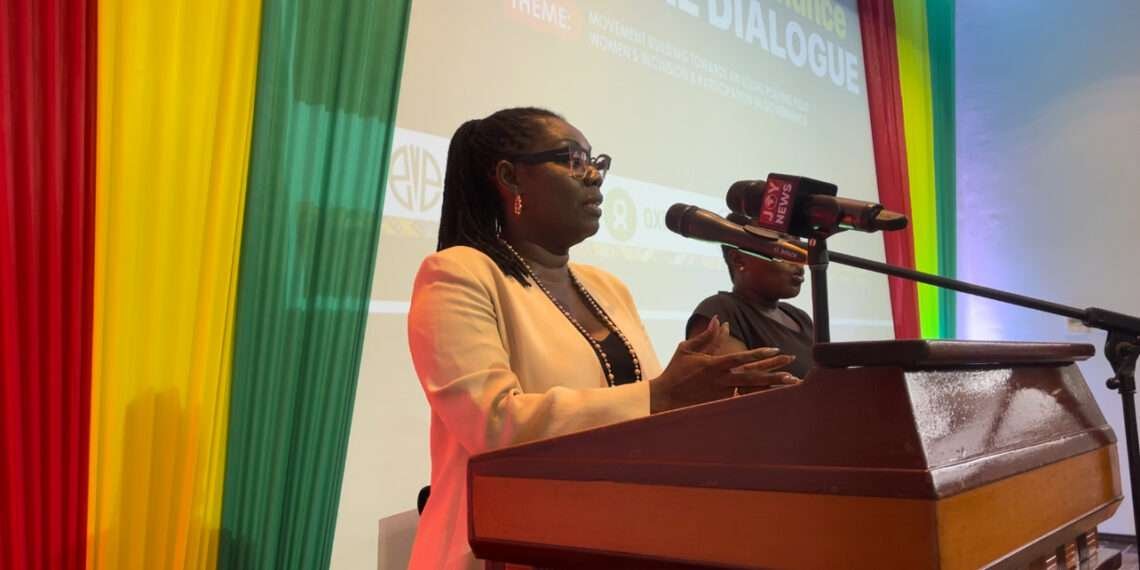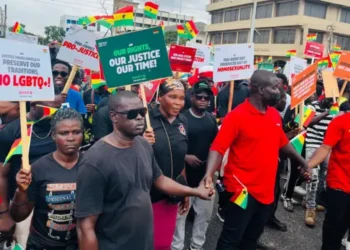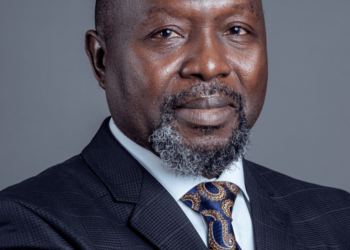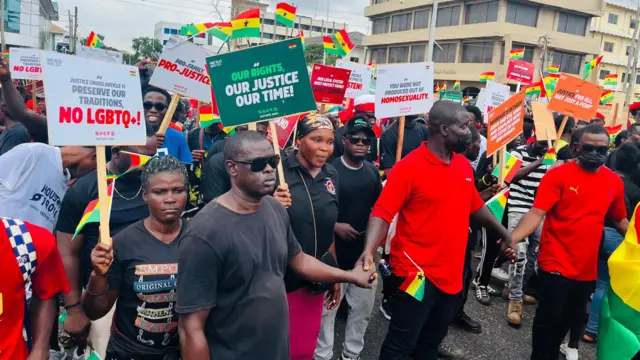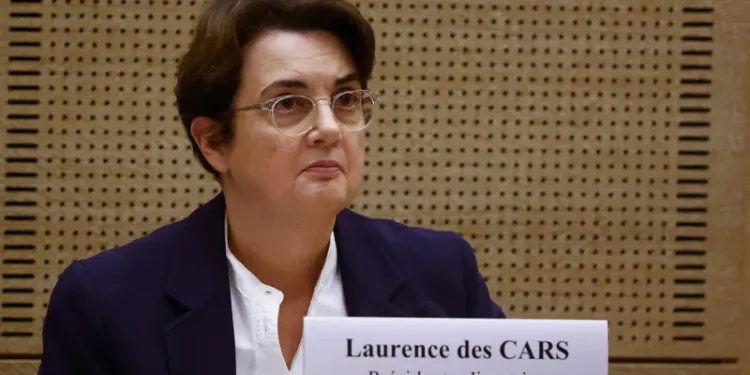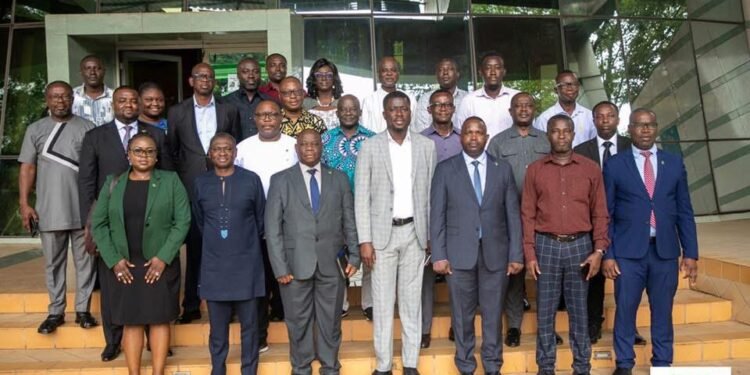Gender inequality remains a significant challenge in many societies worldwide, including Ghana. While progress has been made in recent years, there is still a pressing need to address the long-standing gender disparities that persist in various spheres of Ghanaian society.
To tackle this issue head-on, there is an urgent call for the government of Ghana to pass the long-awaited Affirmative Action Bill. This bill would provide the necessary legal framework to promote gender equality, empower women, and ensure their increased representation in decision-making bodies.
At the Women in Governance National Dialogue held in Accra, the Minister for Communication and Digitalization, Mrs Ursula Owusu-Ekuful, advocated for the passage of this transformative legislation.
“What else will it take for the nation to recognize that women are indispensable to its development? Socially, economically, and in every aspect, we are crucial to the progress of this country, and we deserve a meaningful seat at the table, not as mere tokens. We don’t seek permission from men to join; rather, it’s our inherent right to be there.”
Mrs Ursula Owusu-Ekuful, Minister for Communication and Digitalization

The Affirmative Action Bill is a proposed legislation designed to address the glaring gender disparities in Ghana. The bill aims to create equal opportunities for women in education, employment, and public appointments. It seeks to increase the representation of women in decision-making bodies and eliminate discrimination against women in both public and private sectors.
Despite being in the works for over a decade, the passage of the Affirmative Action Bill has faced numerous delays and setbacks. However, the continued advocacy and growing awareness of gender disparities have reignited the call for its urgent implementation.
In her address at the conference organized by the Eve Foundation in collaboration with OXFAM, Mrs. Owusu-Ekuful underscored the indispensable role of women in driving the nation’s progress.
She declared “We have come to the end of the road, and this is the last alternative we have. It is necessary that the bill be passed to support women because we have the right to be seated at the table.”

Addressing Gender Disparities
One of the key goals of the Affirmative Action Bill is to increase the representation of women in political positions. Ghana currently falls short of the global target of 30% female representation in decision-making roles. Passing the bill would establish quotas and mechanisms to ensure greater gender balance, enabling more women to participate in political processes and contribute their perspectives on important issues.
Additionally, the bill emphasizes the importance of equal access to quality education and healthcare for women and girls. By ensuring that educational institutions prioritize gender equality and provide necessary support, the bill would help bridge the educational gap between genders. The bill also would promote affordable and accessible healthcare services, focusing on women’s specific needs, such as reproductive health.
“I inherited a Girls in ICT program, and upon reviewing it, I saw it as a great idea. I expanded it to create even more opportunities for young people to engage in the digital space.”
Mrs Ursula Owusu-Ekuful, Minister for Communication and Digitalization
The Affirmative Action Bill further aims to address gender-based violence by implementing measures to protect victims and hold perpetrators accountable. It would strengthen existing laws and introduce new provisions to prevent and respond to various forms of violence against women. This comprehensive approach is essential for creating a safe and secure environment where women can thrive without fear of discrimination or violence.
The urgent call for the government of Ghana to pass the Affirmative Action Bill is a crucial step towards addressing long-standing gender disparities in the country. By providing a comprehensive legal framework, this bill would promote gender equality, empower women, and ensure their increased representation in decision-making bodies.
Ghana needs to seize this opportunity to create a more inclusive society that harnesses the full potential of all its citizens, regardless of gender. The passage of the bill would not only benefit women but also contribute to Ghana’s overall development, prosperity, and social cohesion.
READ ALSO: Journalism, Not Just an Institution of Announcement



